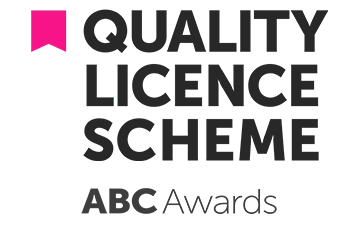FLASH SALE - 75% OFF All Courses
Use Discount Code: SA75 at checkout
SALE
ENDS:
Use Discount Code: SA75 at checkout
ENDS:
 Environmental Auditing and Reporting Diploma
Environmental Auditing and Reporting Diploma
Certified
Certified

Certified
Certified
The first session introduces you to the different types of environmental audit, what they aim to achieve, and how they differ from similar activities such as reviews and inspections. It goes on to discuss the benefits and disadvantages of auditing in more detail.
Session Two explores the preparation work that must be carried out by you as a manager responsible for initiating audits (that is, the client). Client responsibilities and activities are listed in paragraph 4.2.4 of ISO 14011. The session begins by discussing the selection of auditors, including making a decision on whether to use members of staff or external auditors. It then considers the importance of reaching agreement with the auditor about the objectives and scope of the audit.
Session Three discusses the activities that the lead auditor must undertake in preparation for the audit. They include the collection of relevant documents, the compilation of checklists of questions, and the drawing up of an audit specification. Depending on the size of your organisation, you may be required to take on the role of lead auditor. Even if this is not the case, as an environmental manager you will need to know what is involved in planning an audit so that you can give the necessary support and assistance to the lead auditor.
Session Four offers guidance on carrying out the audit, including the opening meeting and the methods you, in the role of auditor, should employ when interviewing, making observations and note-taking.
Session Five explores methods available to evaluate the audit findings and present them to the management of the organisation. It discusses both oral reporting, as in the closing meeting, and written reporting, as in the audit report.
Organisations are finding that communicating with their stakeholders about environmental performance is becoming increasingly important as more people and organisations become interested in the environment. This sixth session looks at the different types of environmental reports available, the reasoning behind publishing them, what they should contain and how they should be compiled to suit different audiences.
Syllabus
Introduction to Environmental Auditing
1.1 What is environmental auditing?
1.2 Types of audit
1.3 Environmental management system audits
Pre-audit Activities for the Manager
2.1 Selecting the audit team
2.2 Planning the audit
Pre-audit Activities for the Auditor
3.1 Drawing up the audit specification
3.2 Obtaining information before the audit
3.3 Checklists
Conducting the Audit
4.1 The opening meeting
4.2 Evaluation of the EMS
4.3 Interviewing
4.4 Site tour and observations
Evaluating the Audit Results
5.1 Evaluation of the audit results
5.2 The closing meeting
5.3 Recommendations
5.4 The audit report
Environmental Reporting
6.1 Purpose of producing an environmental report
6.2 Writing the report
6.3 Independent validation
Introduction to Environmental Auditing
1.1 What is environmental auditing?
1.2 Types of audit
1.3 Environmental management system audits
Pre-audit Activities for the Manager
2.1 Selecting the audit team
2.2 Planning the audit
Pre-audit Activities for the Auditor
3.1 Drawing up the audit specification
3.2 Obtaining information before the audit
3.3 Checklists
Conducting the Audit
4.1 The opening meeting
4.2 Evaluation of the EMS
4.3 Interviewing
4.4 Site tour and observations
Evaluating the Audit Results
5.1 Evaluation of the audit results
5.2 The closing meeting
5.3 Recommendations
5.4 The audit report
Environmental Reporting
6.1 Purpose of producing an environmental report
6.2 Writing the report
6.3 Independent validation
FLASH SALE
75% OFF All Courses
Use Discount Code: SA75 at checkout
FLASH SALE
75% OFF
All Courses
Use Discount Code:
SA75
at checkout
Accreditation
This course has been accredited by Online Academies. On successful completion of this course you will be able to download or print off a PDF of your Online Academies Certificate (please note: you will also be given the opportunity to have a hard copy of the certificate printed off and posted out to you for a small additional charge). If you would like to view a sample of the certificate, please click here.

Online Academy work with Quality Licence Scheme (Quality Licence Scheme). The Quality Licence Scheme is part of the Skills and Education Group, a charitable organisation that unites education and skills-orientated organisations that share similar values and objectives. With more than 100 years of collective experience, the Skills and Education Group’s strategic partnerships create opportunities to inform, influence and represent the wider education and skills sector.
Assessment
At the conclusion of each module there is a multiple choice question assessment. This will help you remember the main points of the lesson and act as a check that you have retained the essential knowledge and understanding of that particular section. The results can be seen instantaneously and you can correct wrong answers. When the result is satisfactory you can progress to the next module.
Course Outcomes
Once you have successfully completed all the modules for your course you will be awarded:
A Diploma issued by Online Academies
 Newsletter
Newsletter
Be the first to get news and exclusive deals



